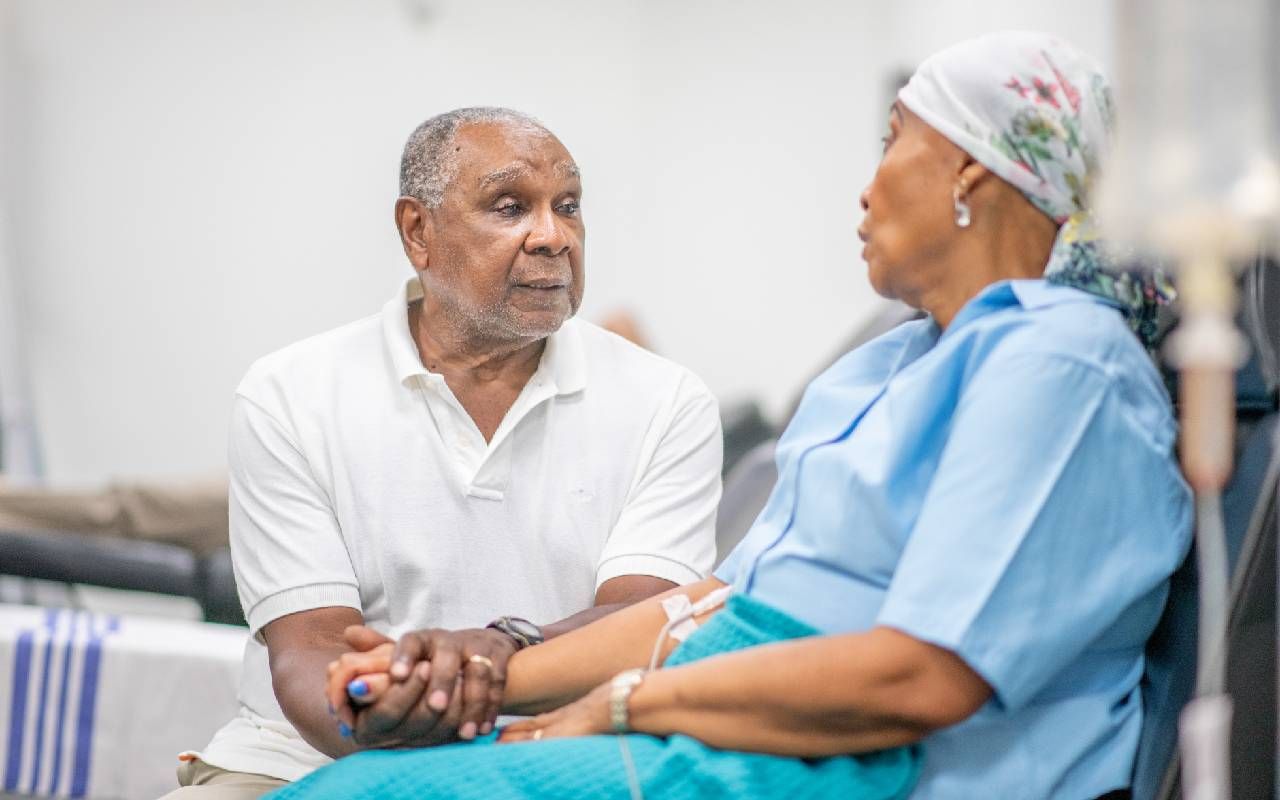The Challenges Facing Male Caregivers
Men can find themselves trying to manage responsibilities and expectations while being accepted for their competency in the role
When business owner Mark Horst (not his real name) of Pompton Plains, New Jersey, first found out his wife of 37 years was diagnosed with Alzheimer's, he didn't know what the journey would entail.

All he knew was he would remain by her side and become her primary caregiver. But his journey of caregiving is one he'd never imagine. A man of faith, Horst, 61, states that he couldn't do it without God's help because having Alzheimer's is "absolutely heartbreaking."
In our society, women are seen as primary caregivers when a loved one is ill and male caregivers are often overlooked.
For a caregiver, situations are often emotional and stressful. In Horst's case, he learned that caring for someone with dementia is complex and requires empathy, patience and kindness. He also knew he'd need help.
Rajiv Ahuja, an associate director at the Milken Institute Center for the Future of Aging, says this type of caregiving help can include providing financial assistance, emotional support and helping with daily tasks such as cooking, cleaning and transportation.
The Levels of Sacrifice
"This can also involve making difficult choices, such as sacrificing personal time and resources, balancing caregiving responsibilities with work and other obligations, and even providing end-of-life care," said Ahuja.
In our society, women are seen as primary caregivers when a loved one is ill and male caregivers are often overlooked; Horst is not alone.
Of all caregivers in the United States, 16 million, or 40%, are men. Of these men, 63% identified as primary caregivers. The United Nations Agenda 2030 recognizes unpaid domestic caregiving in the home as the most significant barrier to gender equality. However, more research must be conducted to understand the social process through which men engage in caregiving.
A new study revealed the motivations for fathers to engage in unpaid domestic caregiving in the home, which include dedication to their loved ones. According to the survey, gender equality begins with accepting men as proficient, competent and primary caregivers.
Past studies indicate that father and male involvement can improve family outcomes, so engaging this demographic and focusing on the family unit is vital. There are also social inequalities that prevent fathers from being able to take on caregiving responsibilities in the home.
Younger Caregivers
Just as nations have paid maternity and paternity leave, companies play a role in empowering all employees to put family first. Caregiving can also be influenced by factors such as language barriers, acculturation and generational differences.
For example, younger generations may have different attitudes toward caregiving and may face unique challenges balancing their caregiving responsibilities with other obligations and expectations.
"I have missed out on doing activities with my peers since I care for my mother and grandmother," says Daniel Chusom (not his real name), a 29-year-old caregiver residing in Pomona, California. "For example, I used to attend a church event for young adults every Friday, but I no longer attend as the time now clashes with when I must leave and pick up my mother from work. There are even times when my work takes a backseat to caregiving."
"I have missed out on doing activities with my peers since I care for my mother and grandmother."
Limitations on time can lead working caregivers to not prioritize life goals, including saving for a comfortable retirement, buying a house, starting a business or getting passed over for a promotion. When they have significant gaps in employment, they might not be as competitive as their peers.
"In my personal life, older people take priority," Chusom says.
How Men Face Unique Challenges
Male caregivers face unique challenges, since they are traditionally not likely to discuss their stress or share their emotions with others.
"I find it hard to make friends, and that's not because I am a man; it's just my personality," said Ricardo Almonte (not his real name), a 47-year-old former long-term caregiver residing in Paterson, New Jersey. "I always thought my wife was my best friend. She still is, but life seems harder ever since I became her primary caregiver."
Not only should communities normalize men as caregivers, but they should also provide support services (like respite care, support groups, etc.) to improve their self-care and mental health. These services can help achieve gender equality and inclusion in caregiving, particularly in a cultural context.
Male involvement in caregiving is essential, mainly because fathers, brothers and others have always played a significant role, even if overshadowed by their female counterparts. Consequently, highlighting the father's crucial role, as well as the roles of other men in the family, in caregiving and including them in programmatic actions is essential to improving the overall quality of care.
It can also involve bringing together the "experience experts" (male caregivers) and "content experts' (researchers and staff) to define problems and solve real-world caregiving challenges through collaborative innovation sessions.
At the same time, it may help reduce any negative bias against male caregivers for a perceived (often wrongly) lack of competence and proficiency as they care for others.

